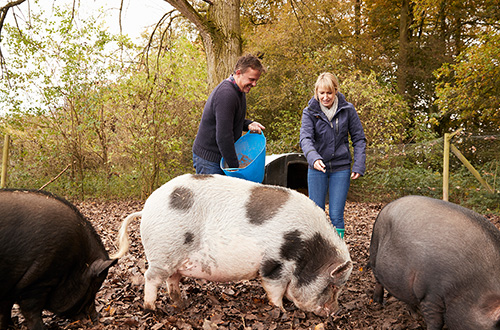You’re arranging the Christmas party for your staff. You’re looking at venues, arranging transport, entertainment, and of course, the drinks. You want to make this a night for your staff to let their hair down and enjoy themselves.
While the tax implications of throwing a Christmas party probably aren’t at the forefront of your mind, not considering them may mean walking merrily into a number of potential pitfalls.
There are four main tax areas to consider when it comes to the annual Christmas party. Will the cost be reportable on your employees’ P11Ds? What happens if the cost exceeds £150 per head? Is the cost of the party deductible in calculating the business’ tax? Finally, can you reclaim the VAT?
Let’s take a more detailed look at the answers.
1. Is the Christmas party taxable on employees’ P11Ds?
The standard position is that a party is not a benefit, as long as it is an annual event, open to all your staff, and the total cost of all such events in the tax year does not exceed £150 per head including VAT.
There are a few points worth considering here. Firstly, HMRC makes a distinction between an annual event, such as a Christmas party, summer ball, etc. and casual hospitality. The £150 per head exemption only applies to annual events.
Secondly, not all staff have to attend the event. However, if the party is only open to select members of staff, it will then be taxable on those select members.
You may be generous enough to also invite partners of the employees. They are treated as staff members for the night so included in the headcount when working out the cost per head.
Finally, the £150 per head is inclusive of VAT, even if you are VAT registered, which means this can be recovered.
The £150 per head must cover the event from beginning to end, therefore it includes any transport costs to and from the event, or accommodation provided by the business for the employees.
There are additional rules if you have more than one annual party, in which the £150 must apply to the total cost of all events for the tax year. In this case, you can pick which one to use the exemption against.
2. Our Christmas party cost has exceeded £150 per head, what can I do?
There are two options you can choose from:
- First, the cost of the party is split between each attending employee. The resulting amount will then be included on their P11D, and taxable on the employee as employment income. If they brought a guest then their guest’s share of the cost will also be included on that employee’s P11D. In addition, you as the employer will be subject to Class 1A National Insurance at 13.8% on the total benefit cost (the cost of the party).
-
You could instead opt to set up a PAYE Settlement Agreement with HMRC for the business to cover the tax and National Insurance. This would increase the overall cost of the party for the business, but does not give rise to a tax charge for the attending employees. The business in this scenario would have to pay the tax which would have been paid by the employees otherwise, and Class1B National Insurance on the value of the benefit plus the tax amount.
3. Can I deduct the cost of the party in calculating the business’ tax liability?
The standard position is that staff entertaining costs are tax deductible. Partners of staff members are also considered to be staff for this purpose, so costs relating to the guests of employees are also tax deductible.
However, as the cost of entertaining clients, contacts or suppliers is not deductible, care has to be taken if any non-staff members are in attendance.
If the attendance list is mixed between staff and suppliers, for example, an apportionment of the costs will be required in calculating the business’ tax position.
4. Is VAT paid on the Christmas party recoverable?
The VAT for entertaining staff at a staff function is recoverable. However, there is a block on the recovery of VAT on general entertaining expenses, so it is important that the aim of the party is to entertain staff rather than suppliers or clients.
If the party is attended by employees and non-employees, for examples spouses, then the VAT can only be recovered on the portion relating to the employees.
In summary, the tax implications of a Christmas party are therefore not always straightforward as they may seem! Hopefully, the information I’ve shared here will help to ensure the only headache you suffer from after the party is from that one festive tipple too many.
If you have any questions about the above, or would like more information specific to your circumstances, please enter your email address below and we will get in touch:













